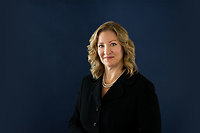By way of a recent advisory opinion, 2024-02, issued June 7, 2024, the Ohio Board of Professional Conduct has determined that the fee arbitration and mediation process established under Prof. Cond. R. 1.5(e) does not apply to fee disputes between attorneys and their former firms absent a subsequent agreement between the firm, the departed lawyers, and the client.
Generally, Prof. Cond. R. 1.5(f ) provides that lawyers jointly representing a client may divide reasonable fees between them. When a dispute arises between attorneys regarding the division of said fees, that Rule provides mandatory fee arbitration and/or a mediation process to resolve such disputes.
The Board of Professional Conduct noted, however, that this Rule applies specifically to lawyers who, at the outset of the agreement, belong to separate firms and are dividing fees. The Rule does not directly address circumstances in which an attorney begins representation with one firm but then subsequently leaves that firm, thus necessitating that fees be divided between the attorney and their former firm. Consequently, the Board determined that Rule 1.5(f ) was not controlling in such disputes and that parties had the liberty of choosing their preferred means of arbitrating.
Further, the Board of Professional Conduct noted that a mandatory arbitration or mediation program was ultimately a policy decision to be made by the Supreme Court for this particular circumstance. The Board further acknowledged that while many Ohio bar associations that do offer fee arbitration mediation programs do not handle disputes between attorneys and former firms, they could still voluntarily adopt and offer such programs for those disputes. However, the Board ultimately concluded that any participation in such programming would be voluntary between the attorneys and their former firms.
Going forward, this decision offers more flexibility for attorneys involved in fee disputes with their former firms while still leaving open the option for parties to participate in traditional resolution programs.
If you have any questions about this recent opinion, don’t hesitate to contact a member of our Professional Liability practice group.


